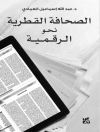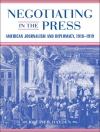’European Languages: A Historical Journey Through Linguistic Evolution’ delves into the fascinating development of European languages, offering a comprehensive exploration of their origins, evolution, and current state. The book posits that these languages serve as living records of Europe’s complex history, reflecting patterns of migration, conquest, and cultural exchange. By examining the tapestry of linguistic diversity across the continent, readers gain unique insights into historical processes that might otherwise remain obscured.
The book is structured in three parts, beginning with an overview of major language families and their hypothesized origins. It then examines how pivotal historical events, such as the Roman Empire’s expansion and the Age of Exploration, influenced linguistic development. Finally, it analyzes the current state of European languages and discusses future trends.
What sets this work apart is its integration of traditional historical linguistics with modern computational methods, offering fresh perspectives on long-standing questions in the field. Drawing on a wide range of evidence, including archaeological findings and genetic studies, the book employs innovative data visualization techniques to illustrate complex linguistic relationships. Its interdisciplinary approach connects linguistics to archaeology, genetics, and cultural anthropology, providing a holistic view of language development.
While primarily aimed at students and scholars, the accessible writing style and engaging anecdotes make it appealing to anyone interested in European languages or cultural heritage.












